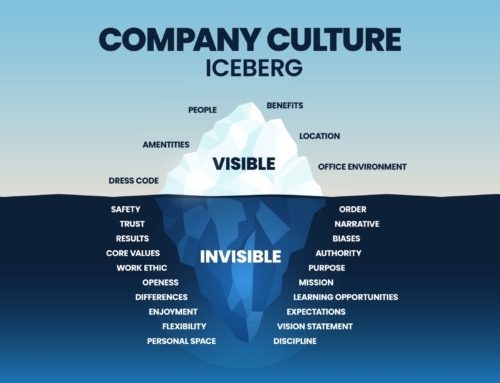The answers might surprise you; many may be intending to leave sooner than you think, or that you are planning or prepared for. People are looking at world affairs and starting to think ‘now might be the time to scale down and move into the next stage of my life after work.
Are you prepared?
Can you afford it?
Have you prepared to retain key intellectual property?
Do you have a succession plan in place?
Maybe you’re at the other end of the scale, you have employees who are ‘floating” and/or rethinking their priorities. How do you help them make the right decisions? How do you support them to the next life stage?
The questions around the ageing workforce are many and varied and the particular circumstances pertaining to each unique. A one size fits all approach will not meet the needs of the employer or their employees. A tailored program Changing Gears, integrated with your HR strategy is required.
Here are some facts about mental health you may not know:
Over 20% of adults aged 60 and over suffer from a mental or neurological disorder (excluding headache disorders) and 6.6% of all disability (disability adjusted life years-DALYs) among people over 60 years is attributed to mental and neurological disorders. These disorders in older people account for 17.4% of Years Lived with Disability (YLDs). The most common mental and neurological disorders in this age group are dementia and depression, which affect approximately 5% and 7% of the world’s older population, respectively. Anxiety disorders affect 3.8% of the older population
WHO Dec 2017
Workers’ compensation mental health claims average 17 weeks of lost time and a median total cost of $27,700 for serious claims, compared to $10,700 for serious physical injury claims
SafeWork Australia, 2018
A recent study by Allianz on workers’ compensation claims in Australia showed a concerning trend that secondary mental health conditions (a physiological condition developed as a result of an original physical injury) were increasing faster than primary claims. And they found that the average cost of a claim with a secondary psychological condition is four times more costly than a primary psychological claim and can lead to 3 times more time off work.
To provide some context, this is eight times more time off work than a primary physical injury claim.
Allianz Australia Insurance Limited, 2019
A recent report into the return on investment (ROI) for employers showed that the right interventions could save Australian businesses $4.5 billion per annum, a ROI ranging from $1.30 (against each dollar spent) for essential job control interventions to $4.70 for psychological conditions and their return-to-work programs.
Mental Health Australia and KPMG, May 2018.
If you have an ageing workforce, this represents a risk that can’t be ignored, talking to the workforce, understanding their needs and explaining the organsitions needs is the first step. Career Life Transitions and Changing Gears can help broker that conversation. To make key decisions for your organisations future you need all the facts. Don’t wait till it’s to late.
To know more about how Changing gears and Career Life Transitions can support your ageing workforce, please call or email us on (08) 6336 8620 or info@careerlife.net.au














Dr Susan Roberts says: